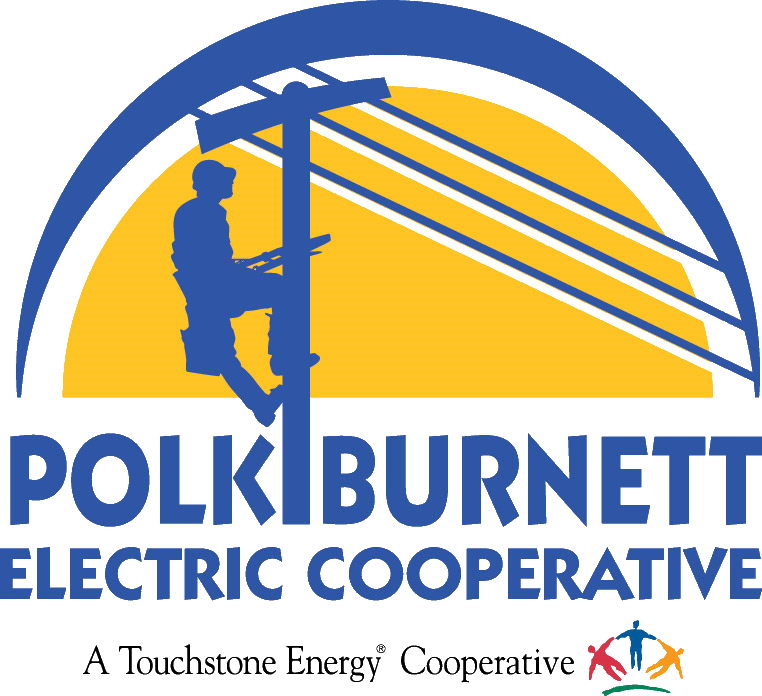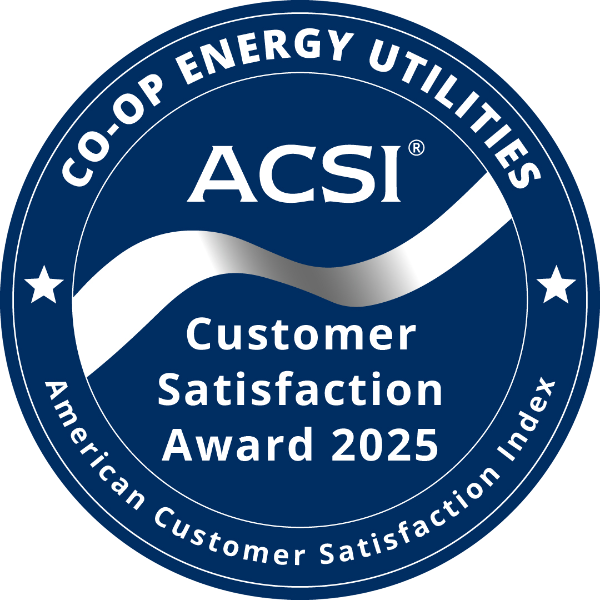

by General Manager Steve Stroshane and Member Services Manager Todd Schulte
Member Services Manager Todd Schulte answers frequently asked questions to help members evaluate the pros and cons of heat pumps for your home or business.
Q: Why would you heat a home or business with electricity?
Schulte: Today’s electric heating equipment is efficient and competitive with other fuel sources. Electric heat is clean, consistent and safe.
Q: Can an electric heat pump save you money?
Schulte: Yes, if you are building new construction or replacing a furnace, I recommend researching an electric heat pump. An ENERGYSTAR-certified heat pump provides highly efficient heating and cooling. Replacing or adding a system that both heats and cools is an all-in-one solution that can help reduce your energy bills. An air source heat pump is 150 to 300% efficient. A geothermal heat pump is 400% efficient, and can even go higher.
Here's a simple cost comparison: If you have a high-efficiency propane furnace, you'd have to purchase LP at $1.05/gallon or less to compete with an air source heat pump on Polk-Burnett's winter electric rate. A geothermal system compares at about $0.62/gallon for propane.
Q: How does a heat pump work?
Schulte: Heat pumps capture the heat that naturally occurs in the air or ground. Like your refrigerator, heat pumps use electricity to move heat, making your home cooler in the summer and warmer in the winter. If you are in the market for a new heating system or looking to upgrade your existing system, make sure you take a look at electric heat pumps. Heat pumps–air source and geothermal–are the most reliable and energy efficient way to heat and cool your home.
Q: How does an AIR SOURCE heat pump work?
Schulte: In summer, an air source heat pump acts as an air conditioner that draws heat from your home’s air and transfers it outside. In winter, the direction is reversed. The system transfers heat from the outside air into your home, using a liquid refrigerant and evaporation through coils (see chart below). A heat pump has two major components: the condenser, also called a compressor, circulates refrigerant through a system of copper or aluminum coils; and an air handler, which distributes the conditioned air. Most heat pumps are split systems, with the condenser outside and the air handler inside.
Q: Do air source heat pumps work in extremely cold weather?
Schulte: The best time of year for an air source heat pump is during shoulder months: March, April and May in the spring and September, October and November in the fall. Air source heat pumps may need alternate heat for extremely cold days. As the outside temperature drops, the efficiency of air source heat pumps and the delivery air temperature also drop. The most common air source heat pumps operate down to temps of 10 to 20 degrees. With advances in technology, some heat pumps can now operate well below zero, while maintaining efficiency and comfort. I recommend discussing options with your heating contractor.
Q: How does a GEOTHERMAL (ground source) heat pump work?
Schulte: Geothermal loops are installed below the soil’s frost line, which has a year-round temperature around 50° F. Compared to weather above ground, this temperature feels cool in summer and warm in winter. A non-toxic fluid flows through the system’s underground coils. In winter, the liquid pulls heat from the ground into the home, where it helps warm inside air. In summer, the process reverses, pulling heat from the home. This warms the fluid in the geothermal loop, which is cooled as it flows through the underground coils before returning to the house. The most common geo systems use vertical or horizontal loop systems. Geothermal heat pumps are the most energy efficient, environmentally clean and cost-effective systems for heating and cooling buildings; homes, offices, schools and hospitals can use geothermal heat pumps. In fact, our co-op building in Centuria is heated and cooled with a geothermal system. While the initial installation and cost of equipment is expensive, the energy savings from a geothermal heat pump results in a payback for most homeowners in about 10 years.
We offer rebates to help members make the switch to energy efficient heat pumps. Tax credits may also be available. Give us a call; we’re happy to help compare which option is best for you. We also recommend you work with a certified HVAC contractor and your tax adviser.
Learn more about geothermal and air source heat pumps.

